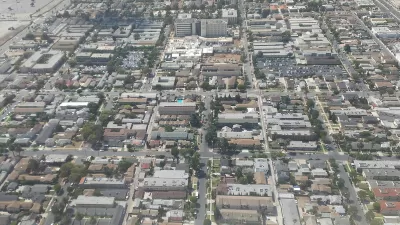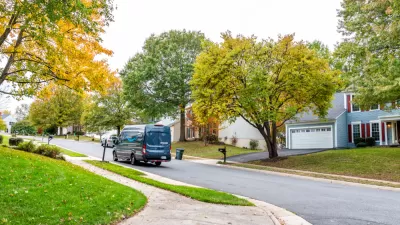Past examples of state and provincial governments preempting the land use authority of local governments present several lessons on how to do state-mandated upzoning effectively.
Michael Andersen writes of the possibility of state preemption of local zoning laws in the Pacific Northwest—i.e., state-mandated upzoning to spur housing development in high-priced cities.
With California attempting and failing to approve SB 827, perhaps the most widely discussed and debated example of state preemption in the last year, other state governments are also at various stages of consideration with the idea of passing some kind of statewide upzoning.
To ponder the potential of state-mandated upzoning in the Pacific Northwest, Andersen looks for lessons in previous examples of state preemption in the regions of greater Vancouver, the state of Washington, and the state of Oregon. Andersen finds a long history of state (or province, in British Columbia's case) preemption from the history of these states and cities. Andresen draws seven key lessons from laws like British Columbia's 1973 Agricultural Land Reserve, which set growth boundaries around Vancouver; the Washington Housing Policy Act, which legalized accessory dwelling units all over the state; Washington's House Bill 1490, which failed in 2009 but would have upzoned transit oriented neighborhoods; and Oregon's urban growth boundary law, SB 100.
After running through a detailed series of observations on these examples, Andersen also catches up on the current status of state preemption in the Pacific Northwest,
A relatively modest bill, legalizing ADUs statewide, passed Oregon’s legislature last year. (Trying to avoid the pitfall of Washington’s earlier ADU legalization, Senate Bill 1051 allowed cities to subject ADUs only to “reasonable” regulations—another case of Oregon legislators leaving the details to courts and regulators.) As in Washington, Oregon faces renewed talk about new state-level upzoning bills.
Finally, Andersen also examines the political realities state governments will have to negotiate to enact mote state preemption in the future.
FULL STORY: COULD STATE-LED UPZONES HAPPEN HERE? 7 LESSONS FROM MODERN CASCADIA

Alabama: Trump Terminates Settlements for Black Communities Harmed By Raw Sewage
Trump deemed the landmark civil rights agreement “illegal DEI and environmental justice policy.”

Study: Maui’s Plan to Convert Vacation Rentals to Long-Term Housing Could Cause Nearly $1 Billion Economic Loss
The plan would reduce visitor accommodation by 25% resulting in 1,900 jobs lost.

Planetizen Federal Action Tracker
A weekly monitor of how Trump’s orders and actions are impacting planners and planning in America.

Waymo Gets Permission to Map SF’s Market Street
If allowed to operate on the traffic-restricted street, Waymo’s autonomous taxis would have a leg up over ride-hailing competitors — and counter the city’s efforts to grow bike and pedestrian on the thoroughfare.

Parklet Symposium Highlights the Success of Shared Spaces
Parklets got a boost during the Covid-19 pandemic, when the concept was translated to outdoor dining programs that offered restaurants a lifeline during the shutdown.

Federal Homelessness Agency Places Entire Staff on Leave
The U.S. Interagency Council on Homelessness is the only federal agency dedicated to preventing and ending homelessness.
Urban Design for Planners 1: Software Tools
This six-course series explores essential urban design concepts using open source software and equips planners with the tools they need to participate fully in the urban design process.
Planning for Universal Design
Learn the tools for implementing Universal Design in planning regulations.
Caltrans
Smith Gee Studio
Institute for Housing and Urban Development Studies (IHS)
City of Grandview
Harvard GSD Executive Education
Toledo-Lucas County Plan Commissions
Salt Lake City
NYU Wagner Graduate School of Public Service





























